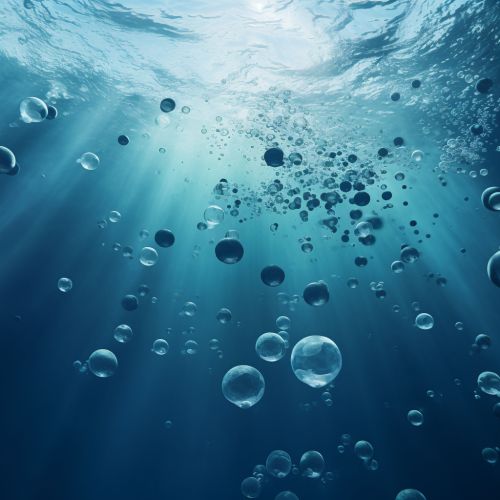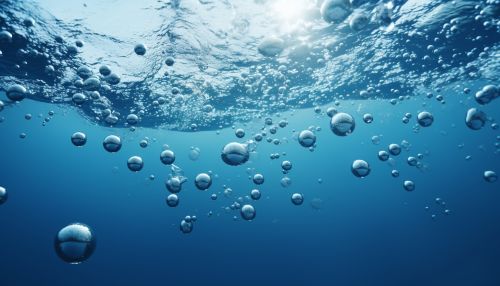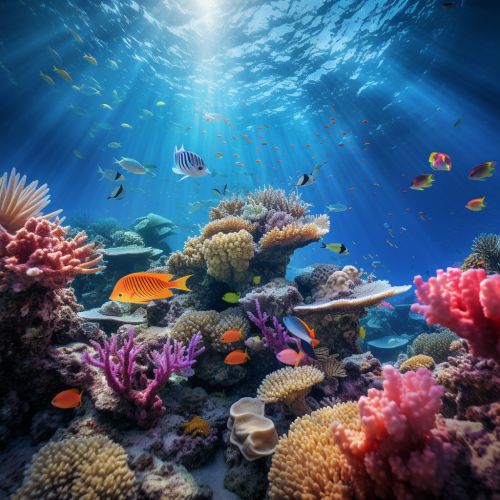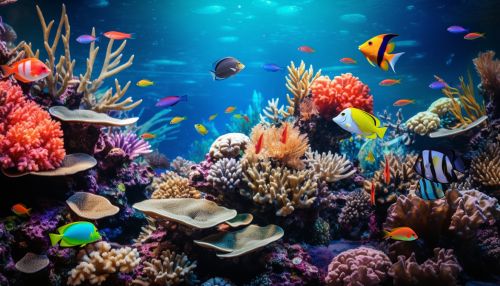Ocean Acidification
Introduction
Ocean acidification is a significant environmental issue that results from the uptake of carbon dioxide (CO2) from the atmosphere by the world's oceans. This process leads to a decrease in the pH of the Earth's oceans, making them more acidic. This phenomenon is primarily caused by the anthropogenic emission of CO2, which is absorbed by the ocean's surface. The increased acidity of the ocean has a range of potentially harmful effects on marine organisms, particularly those with calcium carbonate shells or skeletons, such as corals and molluscs.


Causes of Ocean Acidification
The primary cause of ocean acidification is the dissolution of CO2 in seawater, a process that occurs naturally but has been greatly accelerated by human activities. When CO2 dissolves in seawater, it forms carbonic acid, which then dissociates to form bicarbonate ions and protons. The increase in the concentration of protons in seawater is what leads to a decrease in pH, or increased acidity. This process is known as the carbonate chemistry of seawater.


Effects on Marine Life
The increased acidity of the oceans has a range of potentially harmful effects on marine life. Many marine organisms, such as corals and molluscs, build their shells or skeletons from calcium carbonate, a substance that dissolves more readily in acidic conditions. As the oceans become more acidic, these organisms find it more difficult to build and maintain their shells or skeletons, which can lead to population declines and disruptions to marine ecosystems. Ocean acidification can also affect the behavior and physiological processes of marine organisms, including their growth, reproduction, and survival.


Impact on Human Societies
Ocean acidification not only affects marine organisms and ecosystems, but also the human societies that depend on them. Many people around the world rely on the ocean for their livelihoods, particularly in coastal communities where fishing and tourism are major industries. The decline in populations of shellfish and other marine organisms due to ocean acidification can have significant economic impacts. Moreover, the loss of coral reefs, which serve as important buffers against storm surges and sea level rise, can increase the vulnerability of coastal communities to climate change.


Mitigation and Adaptation Strategies
There are various strategies to mitigate the effects of ocean acidification, including reducing CO2 emissions, enhancing the ocean's capacity to absorb CO2, and helping marine organisms and ecosystems adapt to changing conditions. Reducing CO2 emissions is the most effective way to mitigate ocean acidification, as it addresses the root cause of the problem. This can be achieved through a variety of measures, such as transitioning to renewable energy sources, improving energy efficiency, and implementing carbon pricing policies.


